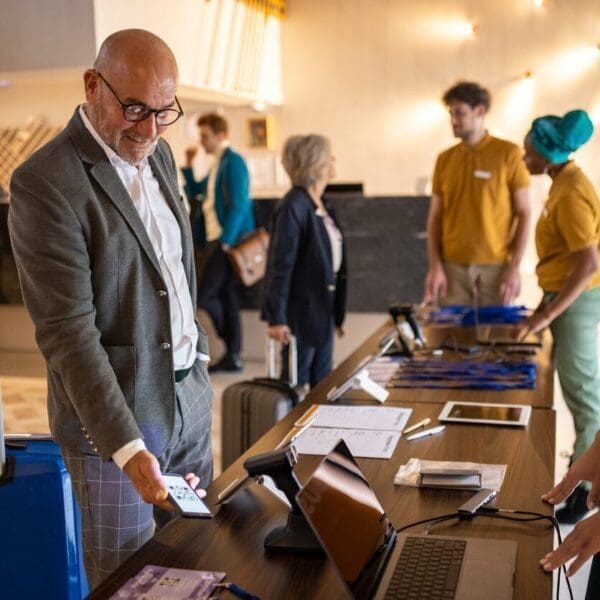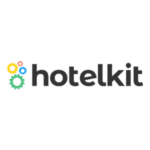 Leisure is back, and groups and corporate will soon follow. But given all the staffing problems that hotels are facing in managing the return of FITs, what’s your plan for properly staffing groups?
Leisure is back, and groups and corporate will soon follow. But given all the staffing problems that hotels are facing in managing the return of FITs, what’s your plan for properly staffing groups?
To help navigate the impact of these two issues to realize big revenue gains from the upcoming return of groups, we recruited Steve Anevski, CEO and Co-Founder of Upshift (www.upshift.work), an on-demand staffing platform with the backing of Recruit Holidings (parent company of Indeed). The company has experienced tremendous growth in the past two quarters, particularly as Upshift’s ability to properly vet then deliver high quality shift workers gives hotels the assurance they need to effectively facilitate events once more.
To the first of these concerns, the psychology of revenge travel, in combination with general stir-craziness and what’s dubbed ‘mortality salience’, will compel a tremendous swarm of newly confident leisure guests to venture forth come Q3 2021 based on current vaccination rates and governmental decrees. As we discussed with Anevski, these same compulsions, however, will invariably lead to a swell in groups, albeit following a different pattern than what comprised group travel in 2019.
Right now, in the summer months of 2021, discussions amongst friends of colleagues are already taking place along the lines of, “Hey, we’re all double-vaccinated now and they’re saying it’s safe to gather in small groups without masks, so let’s start planning something for this fall because we all haven’t seen each other in a long time.”
In lieu of conventions, companywide town halls and 200-or-more attendee receptions, think intimate weddings, family reunions, hub-and-spoke hybrid meetings and senior level-only corporate retreats. Importantly, because of the spontaneousness that underpins revenge travel, these smaller group bookings will have vastly shorter lead times from inquiry and contract to actual event date.
So, let’s list off all the problems that a hotel may encounter in rebuilding its group segment in Q4 2021:
- Smaller groups, meaning more management time required to negotiate all of these at the same time then juggle room blocks and coordinate all specific requirements
- Dire shortages of shift-based labor caused in large part by people leaving the industry as a direct result of the pandemic
- Drastically shorter lead times for event bookings as groups opt to rush back with something in the near-term and release that pent-up demand
- New SOPs related to COVID-19 safety, compounding each group’s specific requirements and mandating more team training
- Inability to bring back many full-time, fixed-cost employees due to the increased carrying debt from a disastrous 2020, the still-depressed revenue on the books and an inability to accurately forecast the shape of an individual hotel’s occupancy recovery
Together, these five factors can make hosting an event a nightmare to effectively render (and create a slew of financial headaches if an event isn’t rendered properly) or outright untenable for some properties. To respond to these market conditions, hotels must remain nimble and recruit labor on an as-needed basis much like how revenue managers yield rates in the face of compression.
Maintaining a mostly variable labor force in name of being able to accept group bookings creates a critical problem in terms of how to source and motivate these shift workers. For 2019 and earlier, variable labor demands were addressed by temp agencies. Like so many other aspects of business, though, the pandemic has brought to light the inherent fallacies of these third parties. Notably, temp accountability was always suscept; hotels would receive workers of questionable training and demeanor, and without the ability to validate quality ahead of a given shift. Often, properties would get temps arriving late, entering the FOH entrance instead of BOH, wearing the incorrect uniform, showing up ‘under the weather’ or failing to review the necessary instructions prior to the start of a shift.
With the pandemic acting as a proverbial gun to hoteliers’ heads towards the adoption of new platforms to help build a contactless and more personalized guest experience, the legacy issue of putting up with the inadequacies of temp agencies can likewise be solved through a deeper reliance on technology.
First is the ability to better manage labor for the coming groups surge and the issue shorter lead times by giving a hotel immediate access to a larger pool of possible hires. Concurrent to this, HR departments would get a palpable productivity boost by using an online portal instead of the old school, paper-and-pen method. Above all, the benefit worth reemphasizing is the heightened accountability. For example, Upshift goes about this through a meticulous prescreening and background check process, combined with a third-strike policy of banning any temp for life from the app should they receive negative feedback three times from a hotel employer.
Despite the narrowing of lead times that hotels may see for upcoming groups, the rule still applies that meetings and events are most likely to be initiated internally by planners a full quarter ahead of the desired date. As such, the time to start aligning your property with a wholly digital method of streamlining your temp workers is now.
Just as the time to realign operations in advance of the leisure travel surge was this past winter, consider how you plan to pivot for the return of groups later this year or into 2022. In this sense, using an on-demand labor platform like Upshift will help you to more effectively service any events you get as well as give your team more confidence in its ability to manage groups to help you win more business in the first place.



















